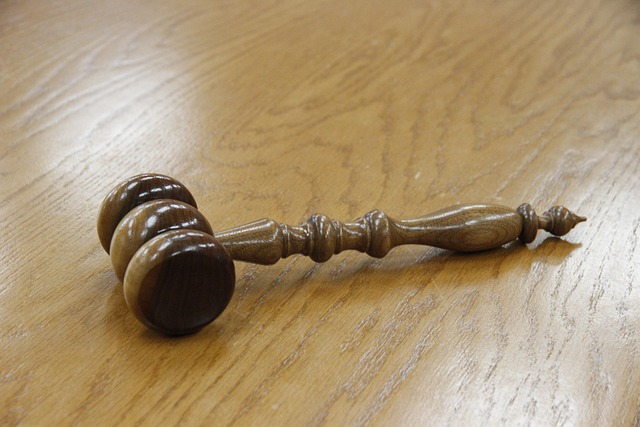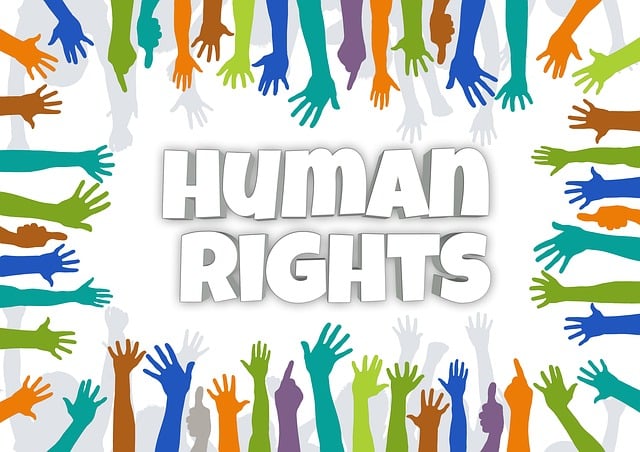Healthcare legal issues span a complex landscape with two primary types of proceedings: administrative reviews and civil litigation. Administrative actions, handled by specialized agencies, focus on regulatory compliance and violations, often resulting in non-monetary sanctions like licensing restrictions, while civil lawsuits involve private parties seeking damages or specific performance through court processes. Understanding these differences is crucial for healthcare providers to effectively manage risks, ensure patient rights, and navigate complex legal environments, from white-collar defense strategies to potential financial and reputational consequences.
In navigating the intricate landscape of healthcare law, understanding the nuances between administrative and civil proceedings is paramount. This article delves into the core aspects of healthcare legal disputes, providing a comprehensive framework for professionals. We explore administrative processes, highlighting key players and their roles, while dissecting the patient-centric focus of civil litigation. By comparing timelines, consequences, and resolutions, we equip readers with insights to navigate complexities effectively. Embrace this guide as your compass through the intricate web of healthcare legal issues.
- Understanding Healthcare Legal Disputes: A Framework
- Administrative Proceedings in Healthcare Law: Processes and Players
- Civil Litigation: Patient Rights and Responsibilities
- Key Differences: Timelines, Consequences, and Resolutions
- Navigating Complexities: Strategies for Healthcare Professionals
Understanding Healthcare Legal Disputes: A Framework

Healthcare legal issues often arise from a complex interplay of regulations and patient care, leading to disputes that can range from administrative reviews to high-stakes civil litigation. Understanding the nuances between different types of proceedings is crucial for navigators in this landscape. Administrative proceedings typically involve regulatory bodies examining compliance with healthcare laws and policies, focusing on matters like licensing, reimbursement, and quality of care. These processes are often non-adversarial and aim to ensure healthcare providers operate within legal boundaries.
In contrast, civil proceedings arise from disputes between private parties, such as patients suing healthcare providers for medical malpractice or breach of contract. Unlike administrative actions, civil cases can lead to substantial monetary damages and are handled in court by general criminal defense attorneys with an unprecedented track record of success. The differences between these two types of proceedings demand distinct strategic approaches, emphasizing the need for specialized legal counsel to effectively address healthcare-related legal issues.
Administrative Proceedings in Healthcare Law: Processes and Players

Administrative proceedings in healthcare law are distinct from civil litigation and play a crucial role in addressing regulatory violations and ensuring compliance. These processes involve specialized agencies, such as government health departments or professional licensing boards, that investigate allegations of misconduct or non-compliance by healthcare providers. Unlike civil lawsuits, administrative proceedings focus on determining liability and imposing sanctions within the specific regulatory framework. The key players include regulators, investigators, and the affected healthcare provider, who have the right to defend themselves against charges.
The differences between administrative and civil proceedings are significant. While civil trials often involve jury decisions and can lead to substantial monetary damages, administrative processes typically result in non-monetary outcomes like licensing restrictions or revocation. Across the country, these proceedings vary in their procedures and standards but generally offer a more streamlined and efficient path for addressing healthcare legal issues. This is in contrast to the often lengthy and complex nature of civil lawsuits, where a complete dismissal of all charges is a rare outcome.
Civil Litigation: Patient Rights and Responsibilities

In healthcare legal issues, understanding the differences between administrative and civil proceedings is paramount for patient rights and responsibilities. While administrative processes, such as license revocations or regulatory inquiries, are typically internal to government agencies, civil litigation involves private parties seeking redress in court. Patients have the right to sue healthcare providers for negligence, malpractice, or breach of contract, ensuring accountability and compensation for any harm suffered. These cases often hinge on complex medical evidence and expert testimony, requiring a meticulous approach to ensure fair outcomes.
Civil litigation offers patients an avenue for justice and closure, with the potential for winning challenging defense verdicts. Conversely, healthcare providers face the prospect of facing white collar defense strategies aimed at achieving complete dismissal of all charges. The nuances of these proceedings demand careful navigation, emphasizing the importance of robust legal representation to protect the rights of both patients and healthcare professionals alike.
Key Differences: Timelines, Consequences, and Resolutions

When navigating healthcare legal issues, understanding the key differences between administrative and civil proceedings is paramount. Administrative processes, often initiated by regulatory bodies like the FDA or CMS, typically focus on ensuring compliance with rules and regulations. These proceedings usually involve faster timelines due to their non-litigious nature, with penalties and remedies such as license revocation or monetary fines. On the other hand, civil proceedings are lawsuits between private parties, with timelines that can span years. These cases often revolve around contract disputes, personal injury, or malpractice, and consequences can include substantial financial damages and reputational harm, making them high-stakes affairs.
The resolutions for these two types of cases also differ significantly. Administrative actions usually result in formal decisions by regulatory agencies, which healthcare providers must comply with to avoid further penalties. Civil lawsuits, however, may lead to court-ordered remedies or settlements, often achieving extraordinary results that can shape industry practices across the country. While both have distinct characteristics, understanding these differences is crucial for healthcare entities aiming to mitigate risks and protect their interests in an increasingly complex legal landscape.
Navigating Complexities: Strategies for Healthcare Professionals

Healthcare professionals often find themselves navigating complex legal landscapes, especially when dealing with patient care and administrative matters. Understanding the nuances between various legal proceedings is crucial to managing risk and ensuring compliance. The key lies in distinguishing between administrative and civil lawsuits, as they have distinct characteristics and outcomes.
Administrative proceedings typically involve regulatory bodies and government agencies overseeing healthcare practices. These processes often focus on licensing, accreditation, and compliance with healthcare regulations. In contrast, civil proceedings are private lawsuits brought by or against individuals or entities, seeking damages or specific performance. Healthcare providers need to be adept at managing both types of cases, especially in high-stakes scenarios involving white-collar defense. Strategizing early, gathering comprehensive documentation, and staying informed about legal precedents can lead to successful outcomes, including a complete dismissal of all charges in less complex matters.
Healthcare legal issues encompass a complex web of administrative and civil proceedings, each with distinct timelines, consequences, and resolutions. Understanding these differences is crucial for both healthcare professionals and patients. By familiarizing themselves with the various processes, from administrative investigations to civil lawsuits, stakeholders can better navigate complexities, protect patient rights, and foster a more efficient healthcare legal landscape. This knowledge equips everyone involved to make informed decisions and ensure the best possible outcomes.






